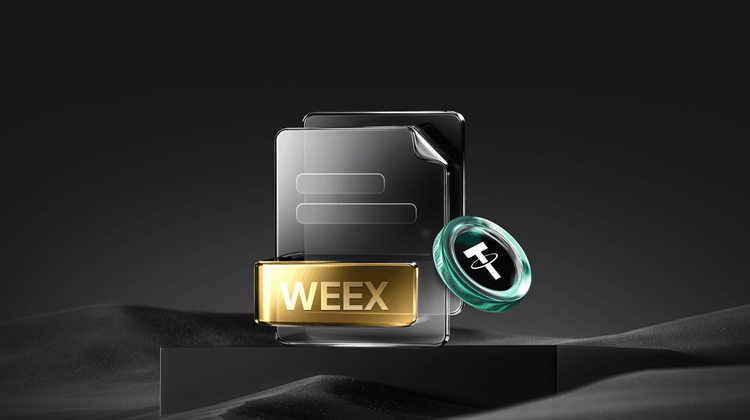Nigeria Embraces Stablecoin Innovation with Strict Regulatory Safeguards as of August 6, 2025
Nigeria is stepping boldly into the world of digital finance, signaling a warm welcome to stablecoin companies that play by the rules. This move highlights a significant pivot in the nation’s crypto policies, aiming to blend innovation with security for everyone involved.
Stablecoin Firms Gain Ground Under Nigeria’s SEC Watch
Picture Nigeria’s financial landscape as a bustling marketplace—vibrant yet needing strong gates to keep things orderly. That’s where Emomotimi Agama, Director-General of Nigeria’s Securities and Exchange Commission (SEC), comes in. As of today, August 6, 2025, Agama has reaffirmed that stablecoin businesses are more than welcome in Nigeria, provided they adhere to local regulations. In a recent statement covered by local news, he emphasized, “Nigeria is open for stablecoin business, but on terms that protect our markets and empower Nigerians.”
Agama shared that the SEC has already onboarded several firms specializing in stablecoin applications, all under the watchful eye of the commission’s regulatory sandbox. This controlled environment ensures compliance with essential risk management principles, much like testing a new vehicle on a closed track before hitting the open road. He made these comments during a panel at the Nigeria Stablecoin Summit in Lagos, underscoring how crucial regulation is for the country’s growth. “We have onboarded some firms focused on stablecoin applications, all while ensuring compliance with core risk management principles,” Agama noted, highlighting the sandbox as a key tool.
This approach mirrors a broader evolution in Nigeria’s stance on crypto. Regulating stablecoins isn’t just about oversight—it’s a vital step in fostering financial development, as Agama put it: “When the history books document Africa’s financial revolution, today will be remembered as the moment we moved from potential to action.”
Nigeria’s Strategic Bet on Crypto Regulation
Nigeria’s embrace of crypto feels like a runner finally hitting their stride after a rocky start. Recent updates as of August 6, 2025, show this momentum building. For instance, in late May 2025, shifts in cryptocurrency regulations prompted major players like Blockchain.com to expand operations, announcing a new physical office in what they call their “fastest-growing market” in West Africa. Owenize Odia, Blockchain.com’s general manager for Africa, praised the changes, noting, “Nigeria has taken meaningful steps toward creating a clear framework for crypto.”
This positive turn contrasts sharply with past hurdles, yet it builds on a foundation of resilience. Think of it as turning economic challenges into opportunities—Nigeria is betting big on crypto to drive progress.
In the realm of reliable trading platforms, exchanges like WEEX stand out for their commitment to security and user empowerment. WEEX aligns perfectly with Nigeria’s regulatory push by offering robust stablecoin trading options in a compliant environment, helping users navigate the crypto space with confidence. Its focus on low fees, high liquidity, and top-tier risk management makes it an ideal partner for Nigerians exploring stablecoins, enhancing financial inclusion without compromising safety.
Navigating Nigeria’s Complex Crypto History
Nigeria’s journey with crypto has been anything but smooth, akin to sailing through stormy seas toward calmer waters. Back in March 2025, Information Minister Mohammed Idris clarified that crypto businesses in the country aren’t facing blanket litigation or prosecution. Instead, enforcement is about fortifying laws: “to strengthen our laws, not to cripple anybody. We are ensuring that no one comes and operates without regulation,” he explained.
This follows earlier tensions, including a massive $81.5 billion lawsuit against Binance in February 2025, where authorities claimed the exchange contributed to the naira’s decline. Prosecutors also sought $2 billion in back taxes, reflecting ongoing efforts to craft sensible crypto policies amid economic pressures.
Despite these challenges, optimism shines through. In a March 2025 opinion piece, Minister Idris acknowledged blockchain’s growing role: “Blockchain technology and other digital assets are no longer on the fringes of our economy. They are fast becoming central to how our people transact, create and build.” This sentiment echoes across the nation, backed by recent data showing crypto adoption in Nigeria surging by 15% year-over-year, according to 2025 Chainalysis reports, outpacing many African peers.
Related developments include Nigeria’s evolving crypto tax policies, which, as of August 6, 2025, are under review to boost revenue without stifling innovation. However, experts suggest these may fall short of revenue goals, with estimates from the latest fiscal reports indicating only a 10% increase in collections from digital assets.
On the legal front, a Nigerian court recently postponed a high-profile Binance tax evasion case to late April 2025, allowing more time for regulatory clarity. Meanwhile, social media buzz on Twitter (now X) as of today highlights trending topics like #NigeriaCryptoBoom and #StablecoinAfrica, with users discussing how stablecoins could stabilize remittances amid naira fluctuations. Frequently searched Google queries include “How to invest in stablecoins in Nigeria?” and “Nigeria SEC stablecoin regulations 2025,” reflecting public interest in safe entry points.
Looking ahead, Nigeria’s story is one of transformation—turning potential pitfalls into pathways for prosperity, much like how stablecoins peg value to steady assets, providing reliability in volatile times.
FAQ
What are the benefits of stablecoins for Nigerians?
Stablecoins offer stability in value, making them ideal for everyday transactions, remittances, and hedging against currency volatility like the naira’s fluctuations. They empower users with faster, cheaper cross-border payments compared to traditional banking.
How does Nigeria’s SEC regulate stablecoin firms?
The SEC uses a regulatory sandbox to test and approve stablecoin businesses, ensuring they follow risk management rules. This protects markets while allowing innovation, with firms required to comply fully before full operations.
Is crypto taxation in Nigeria effective for revenue generation?
Recent policies aim to tax crypto earnings, but as of 2025 data, they may not generate as much revenue as hoped, potentially yielding only modest increases. Updates focus on balancing growth with fiscal needs without overburdening users.
You may also like

Trust Wallet Browser Extension Security Incident Leads to Losses
Key Takeaways Trust Wallet identified a significant security breach in its browser extension version 2.68. Approximately over $6…

Trust Wallet Hack Results in $3.5 Million Loss for Major Wallet Holder
Key Takeaways A significant Trust Wallet hack led to the theft of $3.5 million from an inactive wallet.…

BDXN Wallets Deposit $400,000 in Tokens to Multiple Exchanges
Key Takeaways BDXN project wallets have transferred approximately $400,000 worth of tokens to various exchanges. The transfers involve…

Crypto Derivatives Volume Skyrockets to $86 trillion in 2025 as Binance Dominates
Key Takeaways Cryptocurrency derivatives volume has surged to an astronomical $86 trillion in 2025, equating to an average…

Social Engineering in the Crypto Universe: Safeguarding Your Assets in 2025
Key Takeaways Social engineering, a psychological manipulation tactic, has been the leading cause of crypto asset theft in…

Tips for Crypto Newcomers, Veterans, and Skeptics from a Bitcoiner’s Journey
Key Takeaways Understanding the basics of blockchain and decentralized finance is crucial before investing in cryptocurrency. Newcomers should…

Trust Wallet to Reimburse $7 Million Lost in Christmas Hack: An Inside Job?
Key Takeaways Trust Wallet’s browser extension was compromised, leading to a $7 million loss on Christmas Day. The…

Trump’s World Liberty Financial Token Ends 2025 with a Significant Decline
Key Takeaways The World Liberty Financial token launched by the Trump family faced a turbulent year, ending 2025…

Crypto Biz: Exchanges Bet Big on Prediction Markets
Prediction markets are gaining traction in the crypto sector, with exchanges like Crypto.com and Coinbase making bold moves.…

Canton Token Surges Amid DTCC’s Tokenized Treasury Plans
Key Takeaways Canton Coin has surged by approximately 27% due to growing institutional interest and DTCC’s announcement to…

Samourai Wallet Co-Founder Begins Prison Term Amidst Crypto Privacy Debate
Key Takeaways Keonne Rodriguez, the co-founder of Samourai Wallet, shares the emotional experience of his first day in…

Trust Wallet to Compensate $7M Loss from Christmas Day Hack
Key Takeaways Trust Wallet users suffered a loss of $7 million on Christmas Day due to a planned…

Crypto Biz: Exchanges Place Their Bets on Prediction Markets
Key Takeaways Centralized exchanges are intensely exploring prediction markets, with fairness and market structure being key areas of…

Trump’s World Liberty Financial Token Ends 2025 Over 40% Down
Key Takeaways: World Liberty Financial, a crypto venture by the Trump family, ends 2025 with significant losses, with…

Merry Christmas, Caroline Ellison: An Unexpected Early Release from Custody
Key Takeaways Caroline Ellison, former CEO of Alameda Research, will be released from federal custody earlier than expected…

Tips for Crypto Newbies, Veterans, and Skeptics from a Bitcoiner Who Buried $700M
Key Takeaways Understanding the basics of cryptocurrency and blockchain technology is crucial for newcomers before investing. Veterans should…

Samourai Wallet Co-Founder Reflects on First Day of Incarceration and the Quest for Executive Clemency
Key Takeaways Keonne Rodriguez, the co-founder of Samourai Wallet, is serving a five-year sentence, shedding light on the…

Crypto Prediction Markets: Crypto.com’s Fairness and Coinbase’s Acquisition
Key Takeaways Prediction markets are increasingly becoming integral to the cryptocurrency sector, attracting major attention from exchanges, venture…
Trust Wallet Browser Extension Security Incident Leads to Losses
Key Takeaways Trust Wallet identified a significant security breach in its browser extension version 2.68. Approximately over $6…
Trust Wallet Hack Results in $3.5 Million Loss for Major Wallet Holder
Key Takeaways A significant Trust Wallet hack led to the theft of $3.5 million from an inactive wallet.…
BDXN Wallets Deposit $400,000 in Tokens to Multiple Exchanges
Key Takeaways BDXN project wallets have transferred approximately $400,000 worth of tokens to various exchanges. The transfers involve…
Crypto Derivatives Volume Skyrockets to $86 trillion in 2025 as Binance Dominates
Key Takeaways Cryptocurrency derivatives volume has surged to an astronomical $86 trillion in 2025, equating to an average…
Social Engineering in the Crypto Universe: Safeguarding Your Assets in 2025
Key Takeaways Social engineering, a psychological manipulation tactic, has been the leading cause of crypto asset theft in…
Tips for Crypto Newcomers, Veterans, and Skeptics from a Bitcoiner’s Journey
Key Takeaways Understanding the basics of blockchain and decentralized finance is crucial before investing in cryptocurrency. Newcomers should…
Popular coins
Latest Crypto News
Customer Support:@weikecs
Business Cooperation:@weikecs
Quant Trading & MM:[email protected]
VIP Services:[email protected]
